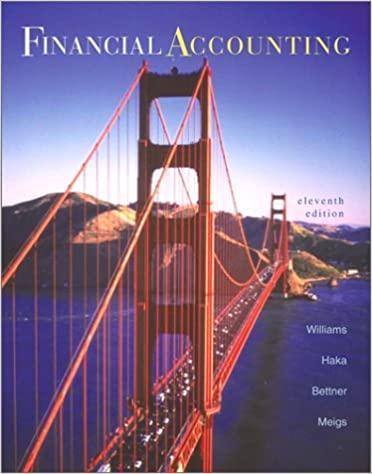Question
Jerry heavily speculated in a very risky technology stock during the market bubble of the late 90's. He paid only $10 per share and purchased
Jerry heavily speculated in a very risky technology stock during the market bubble of the late 90's. He paid only $10 per share and purchased 3,000 shares of WYBOG in May 1999. By year's end, the value of each share had risen to $92. Being in the highest federal tax bracket (39.6% in 1999), he decided NOT to cash in then. He preferred to be taxed at favorable, long-term capital gains rates and so held onto the stock. WYBOG stock price tumbled and he liquidated all of his holdings in June 2000 for $4 per share. Based upon the fact pattern as described:
select one:
a. Jerry had $12,000 in long-term capital gains to offset ordinary income = $3,000 in 2000, with the balance carried forward for future years
b. had jerry cashed in his holdings in December 1999, long-term gains would apply
c. had Jerry cashed in all of WYBOG stock at the end of 1999, he would have seen approximately $98,000 of gain wiped out by taxes
d. Jerry's initial paper profit in December 1999 was more than 900%
Step by Step Solution
There are 3 Steps involved in it
Step: 1

Get Instant Access to Expert-Tailored Solutions
See step-by-step solutions with expert insights and AI powered tools for academic success
Step: 2

Step: 3

Ace Your Homework with AI
Get the answers you need in no time with our AI-driven, step-by-step assistance
Get Started


